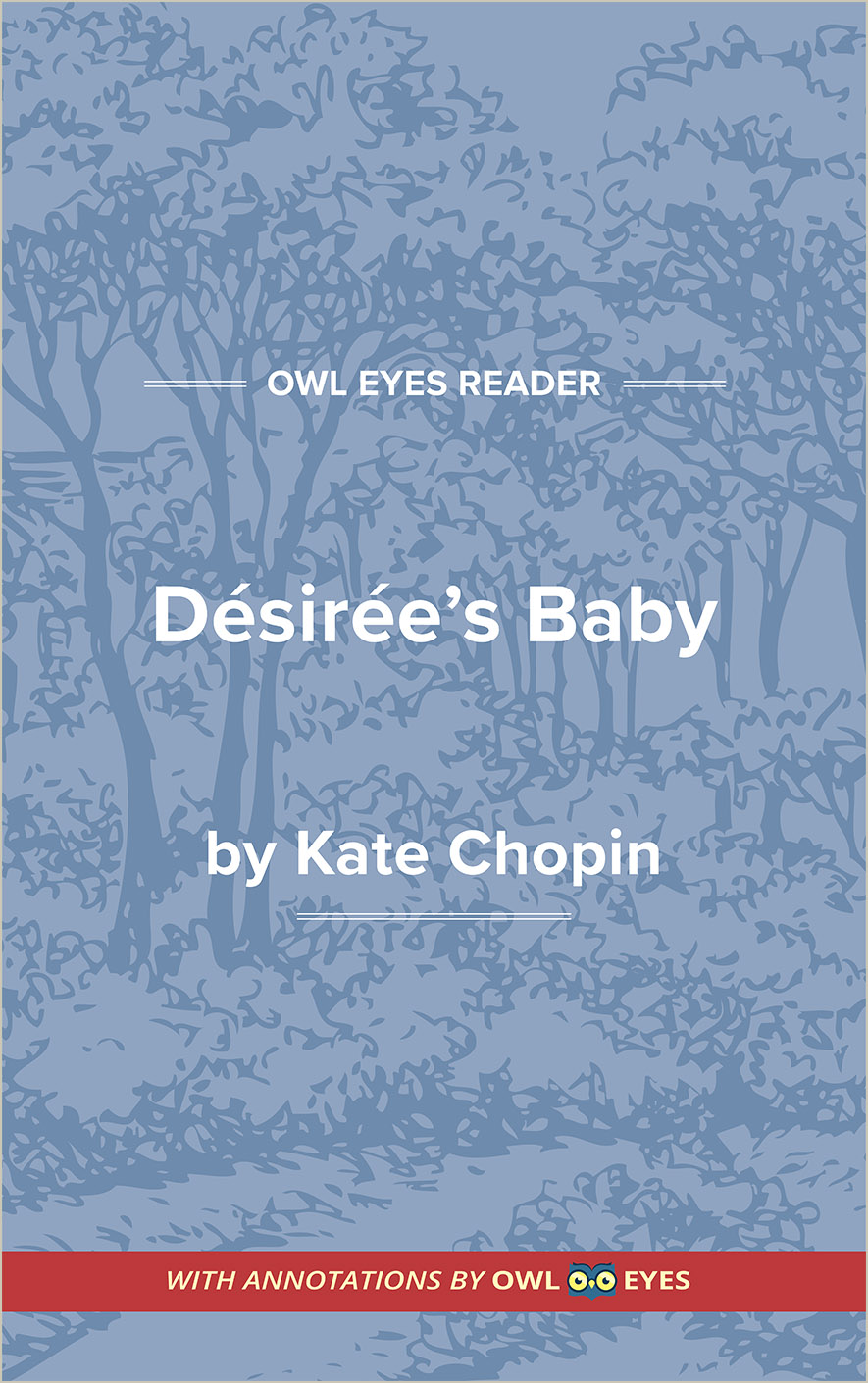Analysis Pages
Plot in Desiree's Baby
Plot Examples in Desiree's Baby:
Désirée's Baby
🔒"belongs to the race that is cursed with the brand of slavery.”..." See in text (Désirée's Baby)
"and she did not come back again..." See in text (Désirée's Baby)
"“Ah!” It was a cry that she could not help..." See in text (Désirée's Baby)
"“This is not the baby!”..." See in text (Désirée's Baby)
"What did it matter about a name when he could give her one of the oldest and proudest in Louisiana?..." See in text (Désirée's Baby)
"Coton Mais..." See in text (Désirée's Baby)

